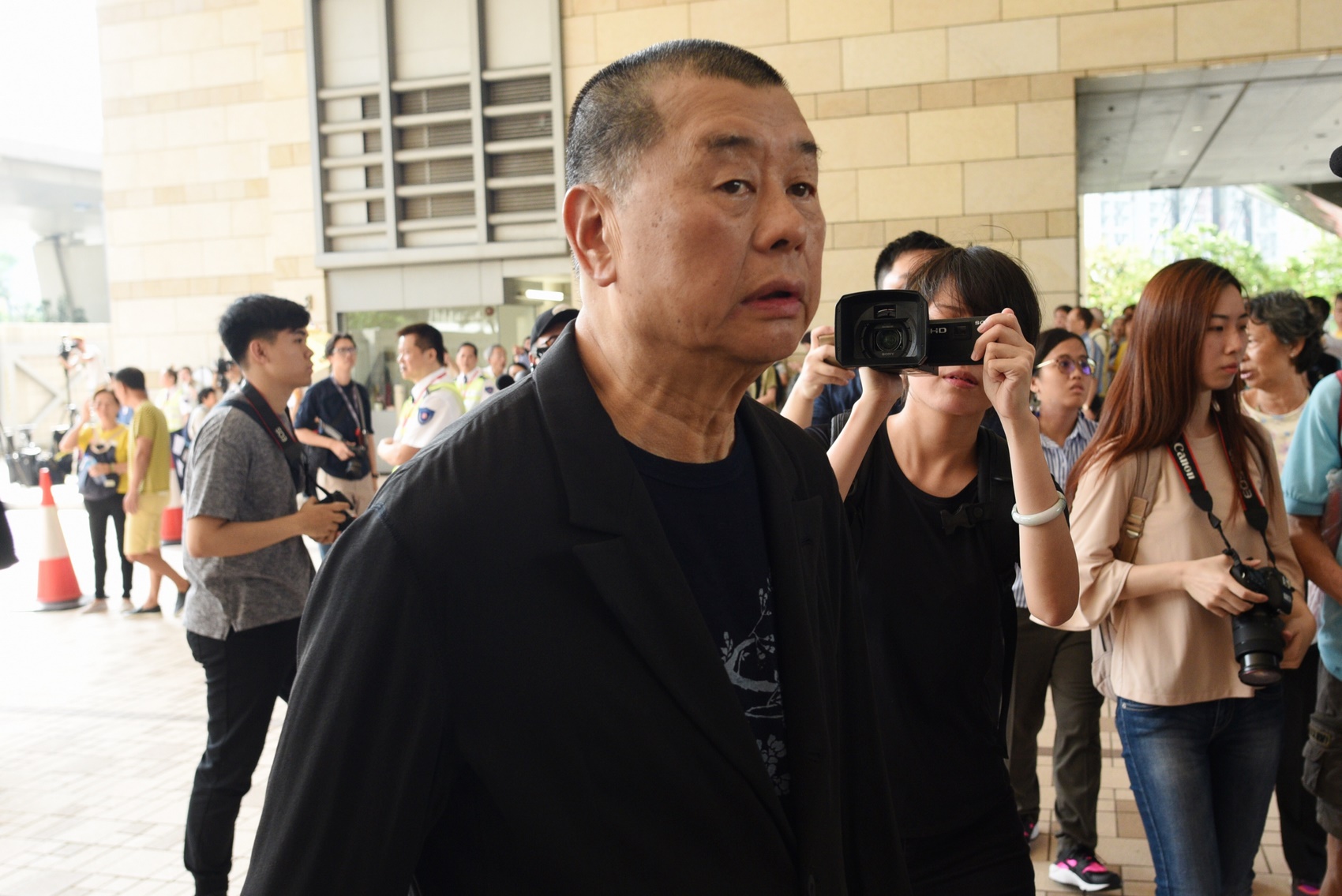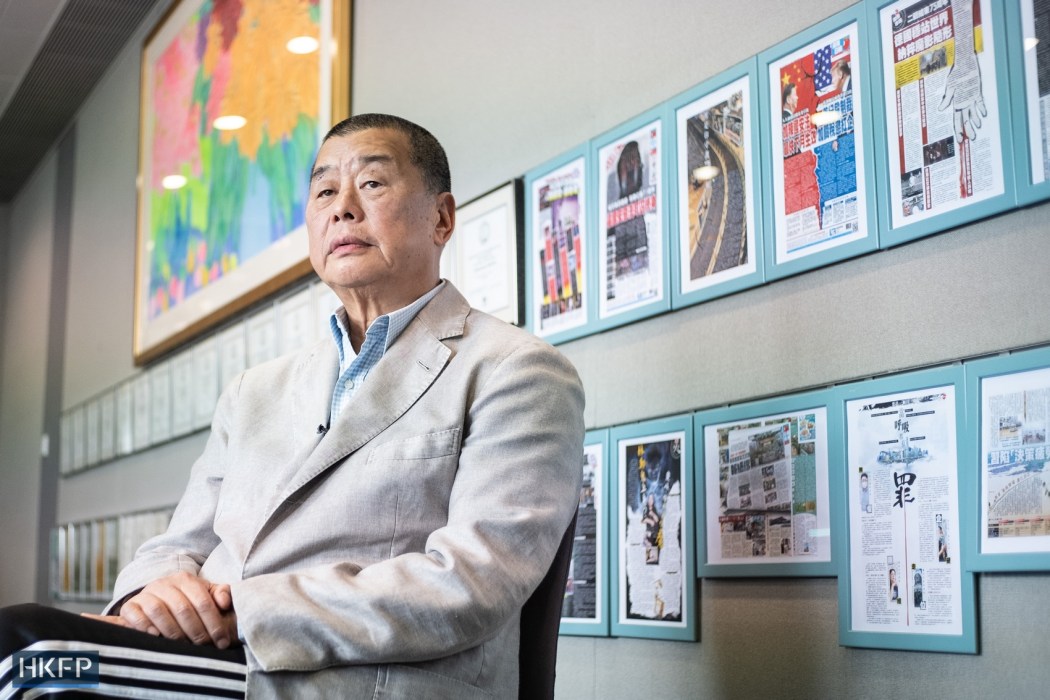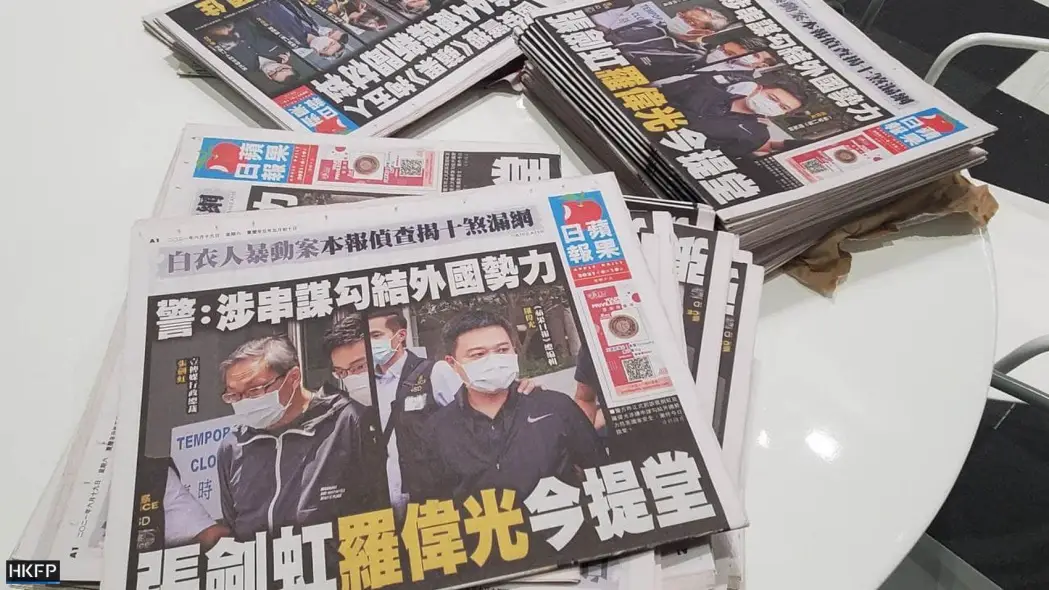Jimmy Lai, the founder of defunct Hong Kong pro-democracy tabloid Apple Daily, has been convicted of fraud after being found to have violated the terms of the lease for the newspaper’s headquarters.

Lai and Wong Wai-keung, the administrative director of Apple Daily’s parent company Next Digital, appeared in front of Judge Stanley Chan at the District Court on Tuesday morning.
Lai had earlier pleaded not guilty to two counts of fraud. He was said to have concealed the fact that Dico Consultants Limited (Dico) operated out of Apple Daily’s offices at Tseung Kwan O Industrial Estate from the Hong Kong Science and Technology Parks Corporation (HKSTP) from April 1, 1998, to May 19, 2020.
Wong pleaded not guilty to one count of fraud relating to the period between January 1, 2016, and May 19, 2020. He was also found guilty on Tuesday.
Next Digital’s former chief operating officer Chow Tat-kuen was initially a co-defendant of the pair before becoming a witness for the prosecution. Chow’s case will be handled separately.

According to the case details revealed during earlier court hearings, the lease stated that Apple Daily’s offices were to be used for “the publishing and printing of newspaper and magazines” only. However, Dico occupied part of the premises, providing secretarial services to other firms and managing Lai’s and his family’s assets without HKSTP’s knowledge or approval.
The defence argued that the case should be handled as a civil matter instead of a criminal one, while Wong’s lawyer said their client was not aware of Dico’s situation.
Chan ruled on Tuesday that the “only possible and reasonable inference” was that Lai was aware of the need to apply for a license that would allow Dico to operate at Apple Daily’s headquarters, but did not do so after learning that Dico would not meet the licensing requirements.

As for Wong, the judge said he could not accept that he was only a “messenger” and did not know about the exact number of companies operating at Apple Daily’s premises, or the nature of their businesses, after having worked with the company for more than two decades. “If [Wong] was a dogsbody, he would have been a high-ranking dogsbody,” Chan said of the ex-chief operating officer.
“It was obvious that the inside of Apple Daily thought there was a lease violation.” Chan said.
“If they thought there were no violations, they could have applied for a license,” he added.
A special lease
Lai’s lawyer said in his closing statement that it was not Lai’s responsibility to disclose Dico’s existence to the landlord, and that such a duty had not been raised.
However, the judge ruled that the lease signed between HKSTP and Apple Daily Printing Limited was different from other leasing contracts in the private market.
Chan said that Apple Daily had enjoyed a cheaper rental rate when compared to the rest of the market and was guaranteed to operate on the premises until 2047. In return, Chan said it was necessary for the HKSTP to introduce stricter land use restrictions to avoid abuse or any subleasing situation.

To allow flexibility, Chan said HKSTP had launched a licensing system for tenants to apply for any subsidiaries or related businesses to operate under the same roof.
According to Chan, Lai had signed documents applying for such licences for 22 other companies before the lease was formally signed between HKSTP and Next Digital in 1999.
However, Lai and other high-ranking Next Digital employees, including Wong, never disclosed the existence of Dico to HKSTP after Dico changed its registration address to Apple Daily’s headquarters on April 1, 1998.
Chan said he “absolutely cannot believe that Lai had forgotten the existence of Dico” when applying for other companies’ licences. “[Lai] must have thought that Dico did not meet the licensing conditions, therefore he did not make any applications,” the judge said, adding that it would only cost the company HK$7,000 to file an application.
Additionally, Chan said a defence argument that Dico was a “trivial operation” which had only occupied 0.16 per cent of the premise’s area was “confusing different concepts,” as the tenant remained responsible for applying for subsidiary licences irrespective of the area of occupancy.

The court will handle the mitigation and sentencing of the two defendants on November 24, until which time Lai will remain in custody. Wong has been allowed to remain on bail.
Apple Daily folded last June after Lai and several other members of the publication and Next Digital were charged under Beijing’s sweeping national security legislation. The law criminalised subversion, secession, collusion with foreign forces and terrorist acts, which were broadly defined to include disruption to transport and other infrastructure.
The media tycoon has been remanded in custody since December 2020. He is also facing charges under the colonial-era sedition law.
Support HKFP | Policies & Ethics | Error/typo? | Contact Us | Newsletter | Transparency & Annual Report | Apps
Help safeguard press freedom & keep HKFP free for all readers by supporting our team
























